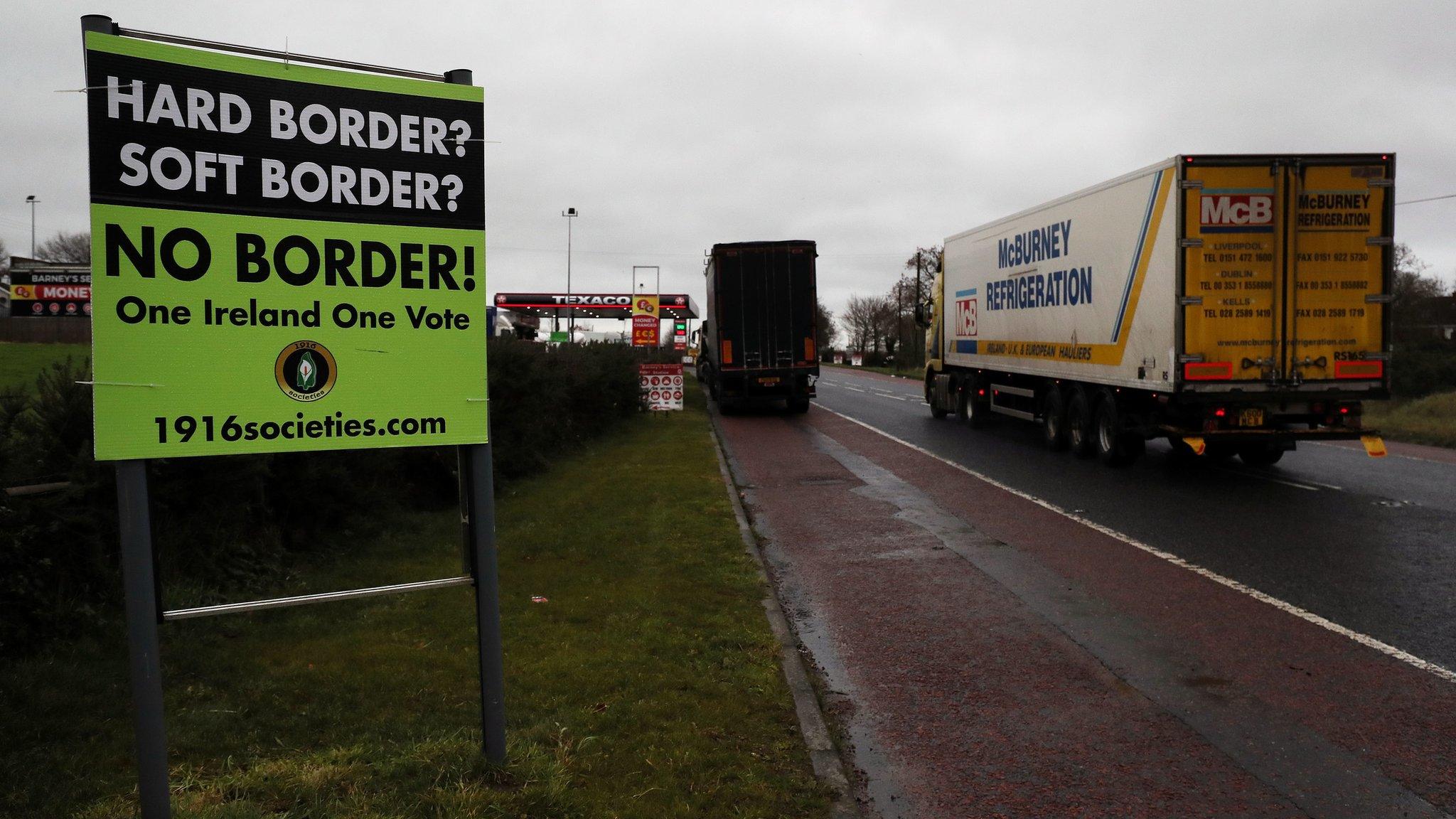No-deal Brexit 'could put 40,000 jobs at risk' in NI
- Published
- comments
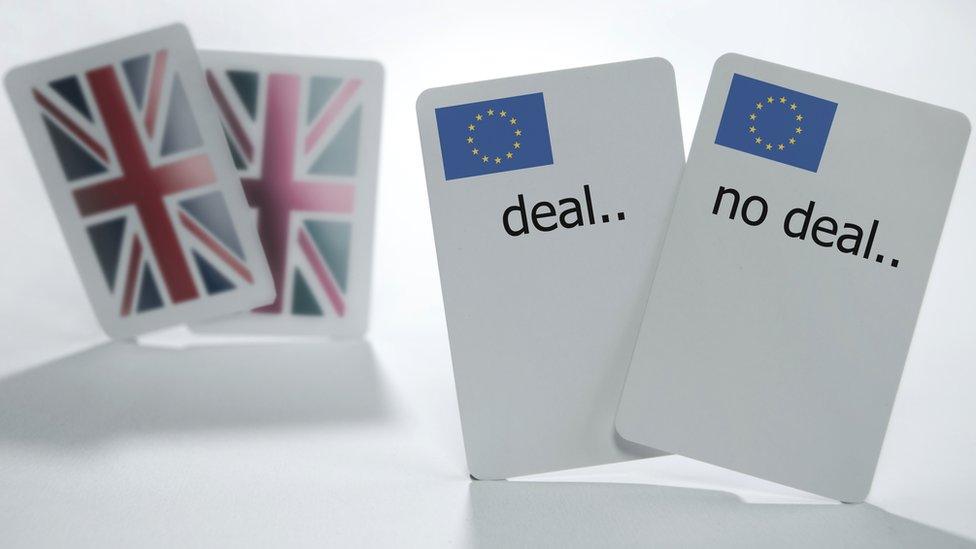
The report says many jobs could "disappear almost overnight, especially in industries such as agri-food and haulage".
A no-deal Brexit could put 40,000 jobs at risk in Northern Ireland, according to new analysis from Stormont's Department for the Economy.
The report, external says many jobs could "disappear almost overnight, especially in industries such as agri-food and haulage".
It also warns of "immediate and severe consequences" for NI competiveness.
Exports to the Republic of Ireland could fall by between 11% and 19%, it warns.
That includes the "significant danger" that most north-to-south agri-food trade would stop.
"The impact of EU tariffs and non-tariff barriers will mean that whatever the Irish Government or the EU may do or not do, many businesses will no longer be able to export to the Irish market," states the report.
Northern Ireland Retail Consortium (NIRC) director Aodhán Connolly said the report made for stark reading but should come as no surprise.
"Brexit is the biggest threat to our economy since the Troubles," he said.
'Border impact'
The department said it had produced the report as it had recently been asked about the statistics it holds on the implications of no deal.
It includes an analysis of how the UK government's no-deal policies on tariffs and the border will affect Northern Ireland.
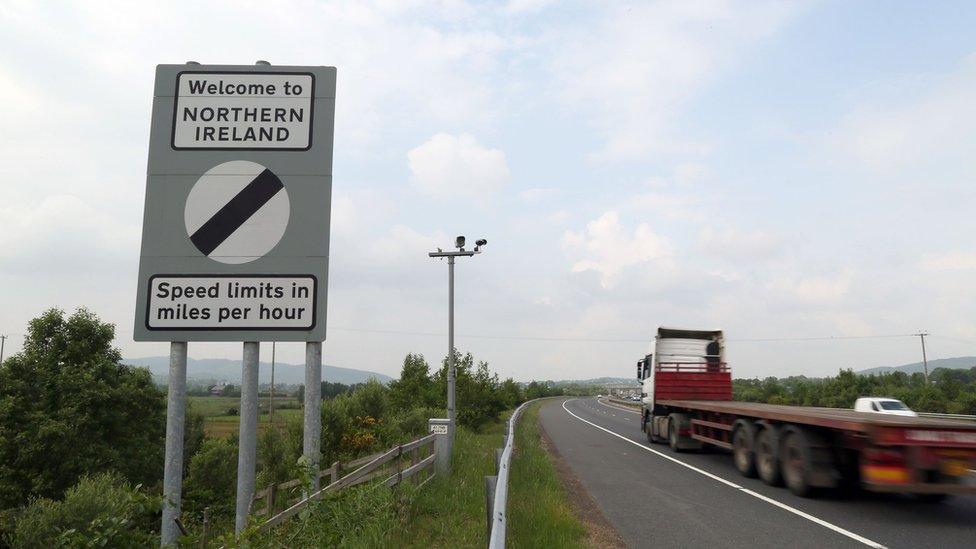
The report also looks at how no-deal policies on tariffs and the border will impact NI
The UK has said it will not impose any checks or tariffs on goods from the Republic of Ireland entering Northern Ireland.
The report says it is a "reasonable assumption" that tariffs will apply to goods going the other way, in line with EU law.
The government will also apply a temporary tariff regime for at all other UK borders which reduces the majority of tariffs to zero.

Analysis: What could this mean for NI farmers?
By Conor Macauley, BBC News NI agriculture and environment correspondent
The report suggests farmers in Northern Ireland would struggle to compete because higher welfare and quality standards mean their cost of production is considerably greater than that of foreign competitors.
That, combined with UK plans to allow agreed volumes of product like beef into the country tariff-free, would make competition difficult.
In addition, it is expected that current UK beef exports to the EU, squeezed by tariffs, could be redirected to the home market, increasing supply and depressing prices.
That would be a very difficult scenario for beef farmers who are already operating with the slimmest margins in the Northern Ireland agri-food sector.
The sheep sector would also be badly hit. With current exports to the EU facing tariffs, the home market could become oversupplied and there would be additional pressure from imports of New Zealand lamb.
The pig, poultry and eggs sectors would also face issues of oversupply in the UK market or stiff competition from third country imports.

The report says that could have implications for Northern Ireland producers as they would have to divert products to the Great Britain market just as competition there was increasing.
"At a time when local industry would be facing steep tariffs on exports to the EU, making exports in many cases unviable, it would be difficult to cope with increased competition in NI and GB markets because of an inflow of cheaper imports from countries with lower production costs," it reads.
"This places a twin pressure on NI's most important markets, leaving businesses with limited option and the NI economy facing an absolute decline in exports and external sales."
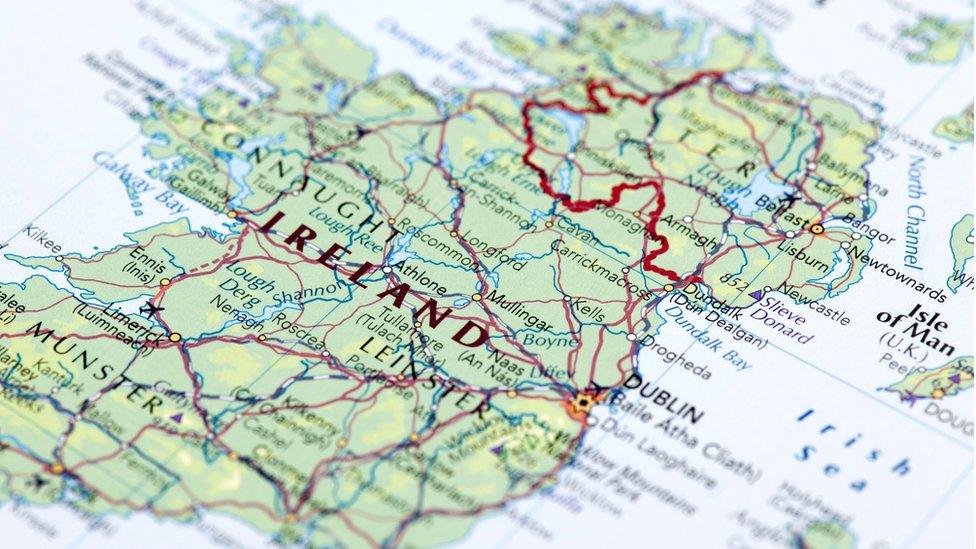
The UK has said it will not impose any checks or tariffs on goods from the Republic of Ireland entering NI
The report also looks at the impact on Northern Ireland as a location for foreign direct investment (FDI).
It draws on recent work by the the Dublin-based ESRI think tank to calculate that in the medium to long run the number of FDI projects would fall by 6% a year and FDI-related new jobs would fall by almost 8%.
It says that could result in fewer exports by foreign-owned businesses, reduced employment and lower productivity.
The report concludes: "The consequences of material business failure as a result of a no-deal exit, combined with changes to everyday life and border frictions would have a profound and long-lasting impact on the economy and society."
The spokesman for the government said its priority was to leave the EU with a deal as soon as possible but it had been planning "for nearly three years" for no deal.
"We are doing everything we can to avoid a hard border and minimise disruption to trade flows, while protecting Northern Ireland's place in the UK internal market," he added.
- Published8 July 2019
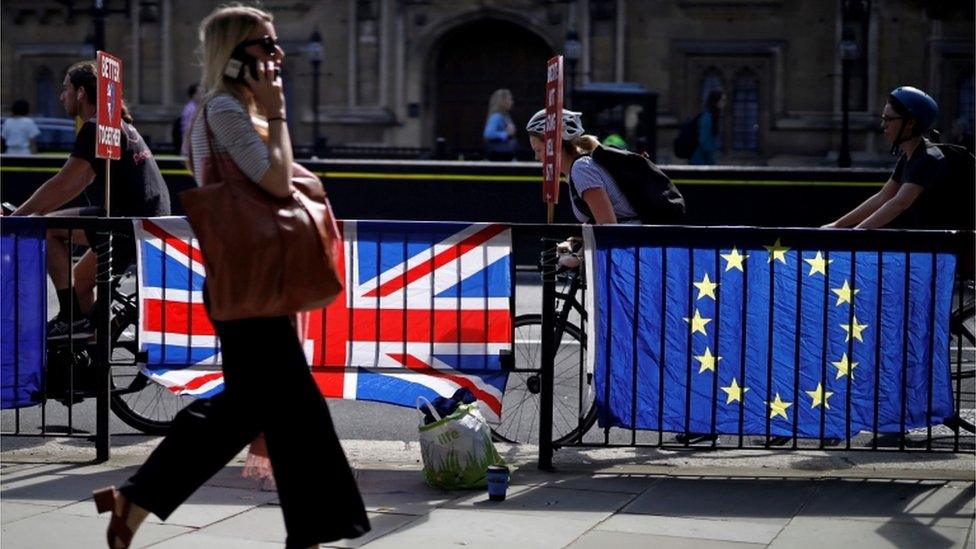
- Published25 June 2019
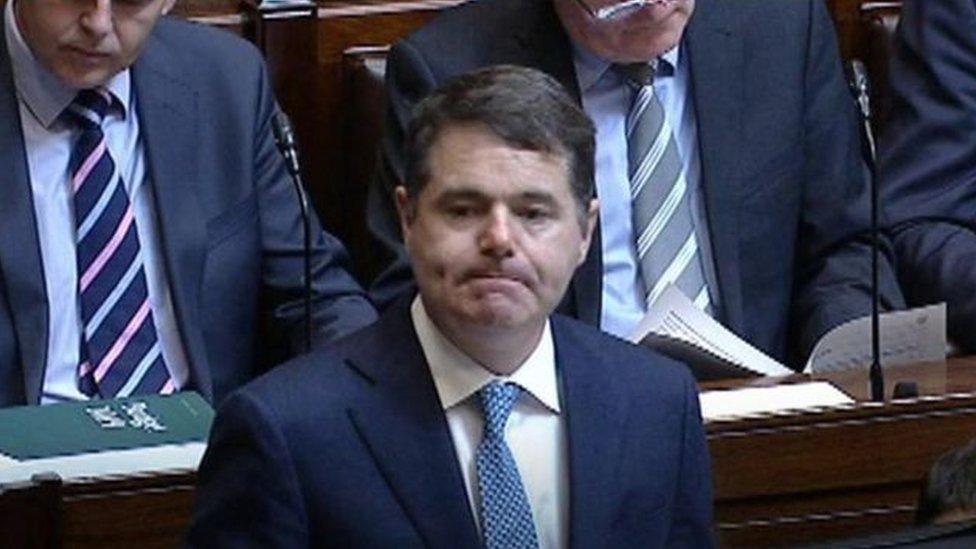
- Published26 February 2019
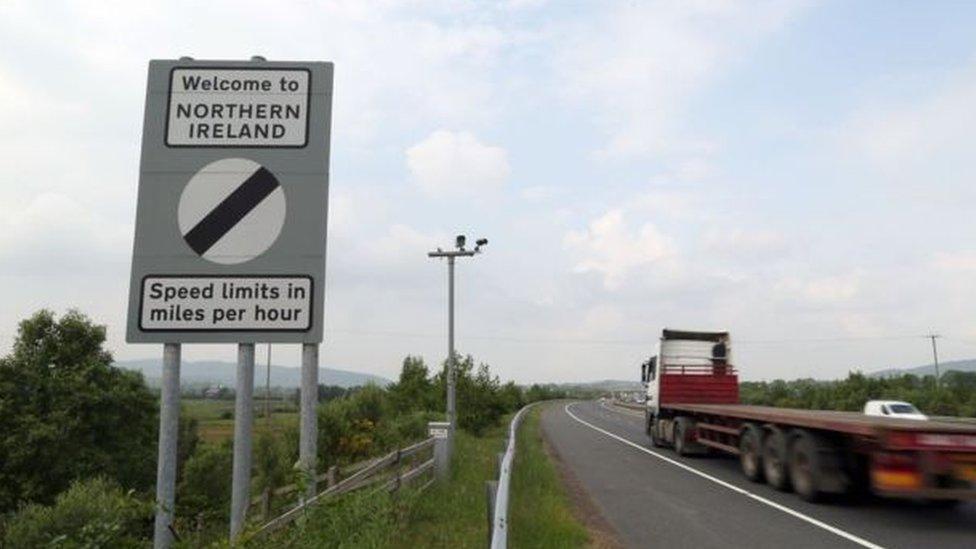
- Published22 January 2019
